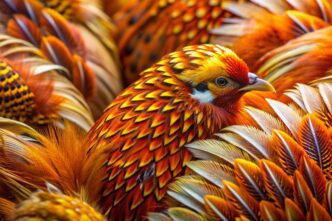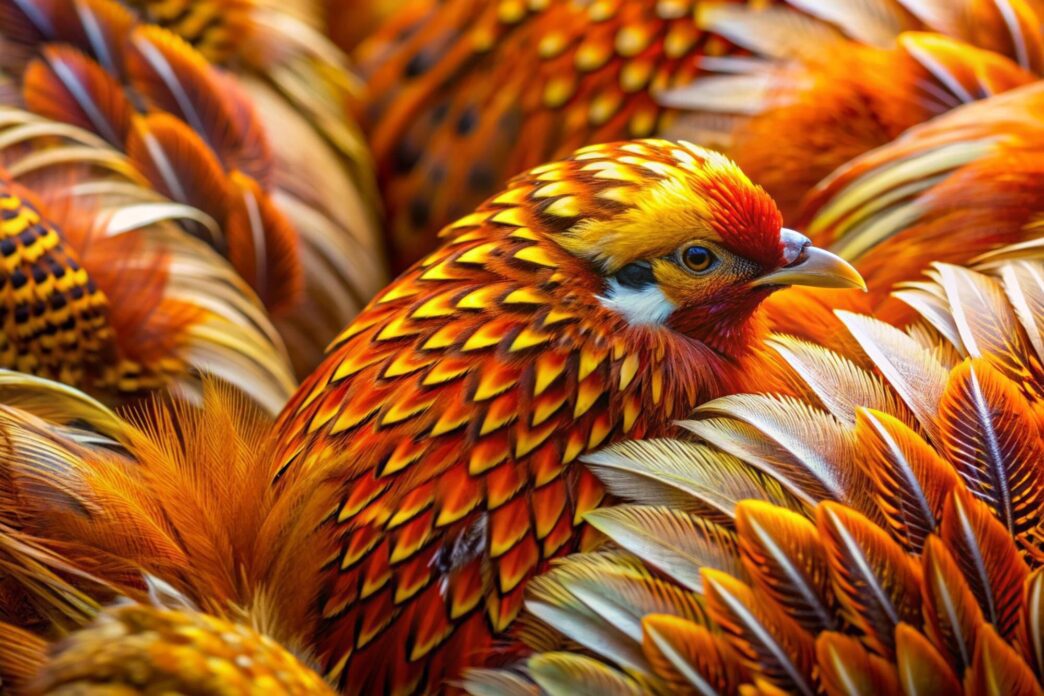Quick Takeaway
Animal & Element Origin
Impact on Personality
Diverse Interpretations
For those born under the sign of the Rooster in the Chinese Zodiac, understanding their inherent health destiny is a powerful tool for wellness and longevity. Representing the meticulous, confident, and hardworking individual, Roosters are generally blessed with robust health, yet they are susceptible to specific predispositions stemming from their elemental affiliations and personality traits. This comprehensive guide aims to unlock the health secrets of the Rooster, offering insights into potential vulnerabilities and providing actionable strategies to cultivate a vibrant and balanced life, ensuring that these diligent souls can crow with good health throughout their journey.
Understanding the Rooster’s Core Health Predispositions
The Rooster, known for its sharp intellect, punctuality, and perfectionist tendencies, often drives itself hard. While this dedication can lead to success, it also creates a predisposition to stress-related ailments. Their strong connection to the Metal element in Chinese five-element theory links them directly to the lungs, large intestine, and skin, making these areas common points of vulnerability.
Roosters frequently exhibit a strong constitution and an active lifestyle, often taking pride in their appearance and physical condition. However, their meticulous nature can sometimes lead to anxiety about health, or conversely, an overconfidence that causes them to ignore early warning signs. Balancing their inherent drive with self-care is paramount for maintaining their well-being.
Common Health Vulnerabilities for Roosters
Several health areas require particular attention for individuals born under the Rooster sign. These are often influenced by their energetic disposition and the elemental associations of their birth year.
Respiratory System: Given their strong Metal element connection, Roosters are often prone to issues affecting the lungs and upper respiratory tract. This can manifest as seasonal allergies, asthma, frequent colds, flu, or bronchitis. Maintaining good air quality, avoiding irritants, and practicing respiratory exercises can be beneficial.
Digestive System: The Rooster’s tendency to worry or overthink can impact their digestive health. Stress often manifests as indigestion, stomach upset, ulcers, or irritable bowel syndrome. A balanced diet, regular eating habits, and stress management techniques are crucial for gut health.
Skin Conditions: As the skin is an organ of elimination and closely linked to the lungs in Chinese medicine, Roosters may experience skin issues such as eczema, rashes, or dry skin, especially during periods of stress or imbalance. Proper hydration, gentle skincare, and addressing underlying stress can help.
Nervous System: Their high energy and perfectionism can lead to mental strain. Roosters are susceptible to headaches, insomnia, and anxiety. They often struggle to switch off their active minds, making relaxation techniques and a consistent sleep routine vital.
The Influence of the Five Elements on Rooster Health
While all Roosters share common traits, their specific birth year element significantly refines their health profile, offering a more nuanced understanding of their strengths and weaknesses.
Wood Rooster (1945, 2005)
Wood Roosters are generally robust and energetic, but their health can be impacted by their tendency towards strong emotions, particularly anger or frustration, which are associated with the liver and gallbladder. They may experience headaches, vision problems, or digestive issues if stress is not managed. Prioritizing stress reduction, adequate sleep, and a diet rich in green vegetables can support liver health.
Fire Rooster (1957, 2017)
Fire Roosters are passionate and dynamic, often possessing a fiery personality that can lead to health challenges related to the heart and circulatory system. They may be prone to high blood pressure, inflammation, or heat-related conditions. It’s crucial for them to manage their temper, avoid overstimulation, and incorporate cooling foods and activities like meditation to balance their internal heat.
Earth Rooster (1969, 2029)
Earth Roosters are stable and practical, often enjoying good physical stamina. However, they are susceptible to issues related to the spleen and stomach, primarily digestive problems, weight gain, or lethargy if their diet is imbalanced or they succumb to excessive worry. Regular, moderate exercise, a balanced diet, and avoiding overthinking can help maintain their digestive and overall health.
Metal Rooster (1921, 1981)
The Metal Rooster embodies the purest form of the sign’s elemental energy, making them particularly strong-willed and resilient. However, this also amplifies their predisposition to respiratory and skin conditions. They must be vigilant about protecting their lungs from environmental pollutants and managing grief or sadness, emotions associated with the Metal element, which can impact their breathing. Practices like deep breathing exercises and maintaining a clean environment are key.
Water Rooster (1933, 1993)
Water Roosters are adaptable and intelligent, often possessing a strong intuitive sense. Their health vulnerabilities often lie with the kidneys and bladder, and they may experience issues with fluid retention, hormonal imbalances, or emotional sensitivity. Managing fear and anxiety, ensuring good hydration, and adequate rest are vital for supporting their kidney energy and emotional well-being.
Actionable Strategies for Rooster Wellness
To truly “unlock their health destiny,” Roosters can adopt several proactive strategies tailored to their unique constitution and challenges.
Stress Management is Key: Given their industrious and often anxious nature, Roosters must prioritize stress reduction. Techniques such as mindfulness meditation, yoga, spending time in nature, or engaging in creative hobbies can help quiet their busy minds and prevent stress from manifesting physically.
Balanced Nutrition and Hydration: A diet rich in whole foods, lean proteins, and plenty of fruits and vegetables supports their digestive system and overall vitality. For Metal Roosters, foods that support lung health (e.g., pears, white radishes) are beneficial. Adequate water intake is crucial for all Roosters, particularly Water Roosters, to support kidney function.
Regular, Varied Exercise: Roosters thrive on activity. While they may be drawn to intense workouts, incorporating a variety of exercises, including cardio, strength training, and flexibility, will serve them best. Outdoor activities can also help them connect with nature and clear their minds.
Prioritize Quality Sleep: Their active minds can make sleep elusive. Establishing a consistent sleep schedule, creating a calming bedtime routine, and ensuring a dark, quiet sleep environment are essential for Roosters to recharge their physical and mental batteries.
Preventative Care and Regular Check-ups: Roosters should not let their confidence overshadow the importance of regular medical screenings. Early detection and intervention are particularly beneficial for addressing their predispositions to respiratory, digestive, and circulatory issues.
Emotional Expression: Roosters, especially Wood and Fire Roosters, can sometimes bottle up emotions. Finding healthy outlets for expression, whether through talking with trusted friends, journaling, or creative pursuits, is vital for preventing emotional stagnation that can impact physical health.
The Rooster’s journey to optimal health is one of balance and self-awareness. By understanding their inherent strengths and vulnerabilities, and by diligently applying tailored wellness strategies, Roosters can transform their health destiny from a series of predispositions into a testament to their vibrant energy and resilient spirit. Embracing this knowledge allows them to navigate life with confidence, energy, and unwavering well-being, truly crowing with vitality.








